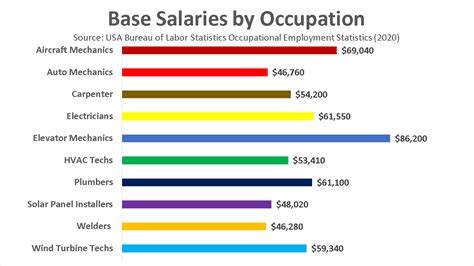Are you considering a career in carpentry? Or are you already a carpenter looking to maximize your earning potential? In this blog post, we will delve into the various factors that can impact carpenter salaries. From the influence of experience and specialized skills to the geographical location and industry, we will explore how these elements can affect the income of carpenters. Additionally, we will examine the correlation between certifications, union membership, educational background, and the potential for career advancement on carpenter salaries. Whether you’re just starting in the field or looking to advance your career, understanding these factors can help you build a solid foundation and pave the way for a lucrative career in carpentry. Join us as we discuss the ins and outs of carpenter salaries and explore the potential for earning a good income in the industry.
Table of Contents
What factors affect carpenter salaries?
When considering the factors that affect carpenter salaries, it’s important to take into account various variables that can impact earnings in this field. One of the key factors is experience, as carpenters with more years in the industry tend to command higher wages. Additionally, the geographic location can also play a significant role in determining salaries, as the cost of living and demand for carpenters can vary widely from one region to another.
Another important factor to consider is specialization. Carpenters who possess specialized skills or knowledge in a particular area, such as cabinet making or finish carpentry, may be able to command higher wages than those with more general skills. Certifications can also impact earnings, as certain credentials or licenses may be required for specific types of work or may demonstrate advanced expertise, leading to higher pay.
Additionally, union membership can influence carpenter salaries, as unionized carpenters may benefit from collective bargaining agreements that establish minimum wage standards and other compensation benefits. Furthermore, a carpenter’s educational background can also impact their earning potential, as those with formal education or advanced training may have access to higher-paying opportunities. Lastly, the specific industry in which a carpenter works can also affect their salary, as construction, woodworking, and other sectors may offer differing pay scales based on demand and skill requirements.
Ultimately, factors such as experience, location, specialization, certifications, union membership, education, and industry all play a crucial role in determining a carpenter’s earning potential. By understanding and considering these various factors, carpenters can make informed decisions to maximize their salaries and advance their careers within the field.
How does experience impact carpenter earnings?
Experience plays a crucial role in determining carpenter earnings. As carpenters gain more years in the field, their skills and expertise increase, which in turn allows them to take on more complex and high-paying projects. This often results in a higher demand for their services and the ability to negotiate higher wages.
Additionally, experienced carpenters are often sought out by clients and employers due to their proven track record and the quality of their work. This can lead to opportunities for higher paying contracts and long-term employment with established companies.
Moreover, as carpenters gain experience, they may also have the chance to specialize in a particular area of carpentry, such as custom woodworking or cabinetry, which can command higher fees compared to general carpentry work.
Overall, the impact of experience on carpenter earnings is significant, as it not only increases their value in the marketplace but also opens doors to more lucrative opportunities within the industry.
Are specialized carpenters paid higher wages?
When it comes to the carpentry profession, specialization can have a significant impact on earning potential. Specialized carpenters who possess a high level of expertise in a particular area of carpentry are often able to command higher wages than general carpenters. This is due to the specific skills and knowledge they have acquired, which are in high demand and can justify higher compensation.
For example, specialized carpenters who are experts in cabinet making, furniture building, or custom woodworking may be able to earn more than those who work in general construction. This is because their specialized skills are valued and sought after by clients and employers, allowing them to negotiate higher pay rates.
Furthermore, specialized carpenters may also have the opportunity to work on higher-profile projects that require their specific expertise, such as custom home construction, luxury interior design, or high-end commercial renovations. These specialized projects often come with larger budgets and more lucrative contracts, enabling specialized carpenters to earn higher wages compared to their non-specialized counterparts.
In conclusion, specializing in a particular area of carpentry can certainly lead to higher earning potential for carpenters. By honing their skills and becoming experts in niche areas of the industry, specialized carpenters can position themselves for increased demand and higher wages, making it a worthwhile career path for those looking to maximize their earning potential.
Exploring the geographical influence on salaries
Geography plays a significant role in determining the salaries of carpenters across different regions. In rural areas, where there may be less competition and a lower cost of living, carpenters may earn lower wages compared to their counterparts in urban and metropolitan areas. This can be attributed to the supply and demand dynamics in a particular location, as well as the availability of skilled workers in the area.
Furthermore, the cost of living varies from one region to another, and this directly impacts the salary levels for carpenters. For example, carpenters working in high-cost cities such as New York or San Francisco can expect to earn higher wages to offset the expensive living expenses. Conversely, carpenters in lower-cost areas may receive relatively lower pay, as the overall cost of living is more affordable.
In addition, economic trends and industry demands in specific regions can also influence carpenter salaries. For example, regions experiencing rapid development and construction growth may offer higher salaries to attract skilled carpenters to meet the demand for their expertise.
Therefore, when considering a career in carpentry, it is important for individuals to research and understand the geographical influence on salaries, as it can impact their earning potential and overall career prospects.
The correlation between certifications and earnings
One of the key factors influencing a carpenter’s earnings is their certifications. Carpenters with specialized certifications often command higher wages due to their advanced skills and expertise. These certifications demonstrate a carpenter’s commitment to continuous learning and professional development, making them more valuable in the eyes of employers.
Employers are willing to pay higher wages to carpenters with certifications because they bring a higher level of expertise to the job. This can translate to increased efficiency, higher quality work, and enhanced safety practices, all of which are highly valued in the construction industry.
Having specialized certifications can also open up opportunities for carpenters to take on more complex projects, which often come with higher pay. Certified carpenters may also be eligible for leadership roles or supervisory positions, further contributing to their higher earnings potential.
In conclusion, there is a clear correlation between certifications and earnings for carpenters. Investing in ongoing education and obtaining specialized certifications can significantly impact a carpenter’s salary, making it a worthwhile endeavor for those looking to increase their earning potential in the construction industry.
How does union membership affect carpenter salaries?
Union membership can have a significant impact on carpenter salaries. Carpenters who belong to a union typically earn higher wages compared to non-union members. This is due to the collective bargaining power of unions, which allows them to negotiate better pay and benefits for their members. Unionized carpenters also tend to have access to more comprehensive healthcare and retirement packages, further contributing to their overall compensation.
Additionally, union membership can provide job stability and greater job security for carpenters. In times of economic uncertainty, unionized workers are often better protected from layoffs and are more likely to receive support in finding alternative employment opportunities if necessary. This level of security can be attractive to carpenters who prioritize stability and financial peace of mind.
It’s important to note that union membership may also come with certain responsibilities and expectations, such as adhering to union regulations and participating in collective actions or strikes when necessary. However, for many carpenters, the potential for higher salaries and enhanced job security outweigh these considerations, making union membership an appealing option.
In conclusion, union membership can significantly impact carpenter salaries by providing higher wages, better benefits, and increased job security. This makes it an important factor for carpenters to consider when evaluating their career options and potential earning potential.
The relationship between educational background and income
When it comes to the earnings of carpenters, educational background plays a significant role. Carpenters who have pursued higher education tend to earn higher income compared to those with only a high school diploma or equivalent. This is because advanced education equips individuals with a more diverse skill set and knowledge base, which can translate to more job opportunities and higher pay.
Moreover, carpenters with a degree or certification in carpentry or a related field often have the chance to specialize in certain areas, such as cabinet making or finish carpentry. This specialization can lead to higher wages as well, as these individuals are highly sought after for their expertise in their respective niche.
Individuals with a background in construction management or business administration may also find themselves earning more in the carpentry field, as they can transition into supervisory or management roles within construction companies, leading to increased income.
Overall, the educational background of a carpenter has a direct impact on their earning potential, and investing in higher education or specialized certifications can lead to a more financially rewarding career.
Do carpenters’ salaries vary based on industry?
When considering a career in carpentry, it’s important to understand how salaries can vary based on the industry in which you work. Carpenters may find employment in a variety of industries, each with its own unique pay scale and earning potential.
Those working in construction may find that their salaries are influenced by factors such as the size and scope of the projects they work on, as well as the demand for skilled labor in their area. For example, carpenters working on large commercial construction projects may command higher salaries than those working on residential projects.
Specialized carpenters working in industries such as boat building, theatrical set design, or custom furniture making may also see higher wages due to the specialized nature of their work and the level of skill and expertise required.
Additionally, carpenters employed by government agencies or organizations may see differences in pay compared to those working for private contractors or small businesses.
Examining the salary differences by job title
When it comes to the carpentry industry, the salary differences based on job title can be quite significant. Carpenter salaries can vary depending on the specific role within the industry, with some roles commanding higher wages than others. For example, a master carpenter with years of experience and expertise may earn a higher salary than a framing carpenter who is just starting out in their career. By examining these differences, we can gain a better understanding of how job title impacts earning potential in the carpentry field.
One of the key factors that influence the salary differences by job title is the level of skill and expertise required for each role. More specialized roles such as finish carpenters or cabinet makers often command higher salaries due to the specialized nature of their work. These roles require a high level of precision and attention to detail, as well as advanced knowledge of specific techniques and materials. On the other hand, roles such as rough carpenter or formwork carpenter may have lower salary ranges, as they may require less specialized skills and expertise.
Another factor that can impact the salary differences by job title is the level of responsibility associated with each role. For example, a lead carpenter who oversees a team of workers and manages projects may earn a higher salary than a general carpenter who primarily focuses on construction and installation tasks. The added responsibility and leadership required for certain job titles can result in higher earning potential and salary differences within the carpentry industry.
Furthermore, the location and demand for certain job titles can also influence salary differences in the carpentry field. In areas where there is a high demand for specialized carpentry roles such as restoration carpenters or ornamental carpenters, salaries for these positions may be higher than in areas where these skills are less sought after. Understanding the regional differences in demand for specific job titles can provide valuable insight into how salary variations are influenced by geographical factors.
The potential for career advancement and higher pay
When considering a career as a carpenter, it is important to evaluate the potential for career advancement and higher pay. A carpenter’s salary can be affected by various factors, including experience, specialized skills, industry, and geographical location.
With increased experience, carpenters can expect higher earnings. This is due to the value that experience adds to their skills and expertise. Carpenters who demonstrate proficiency in their craft over time can demand higher pay and take on more complex and lucrative projects.
Specialized carpenters with expertise in areas such as fine woodworking, stair and rail construction, or cabinetmaking, may also command higher wages. These skills demonstrate a higher level of craftsmanship and can lead to increased opportunities for career advancement and higher pay.
Furthermore, the geographical location and industry in which a carpenter works can significantly impact their earning potential. Carpenters in urban areas or regions with high demand for construction may have access to more job opportunities and higher paying projects, leading to potential for career advancement and higher pay.






